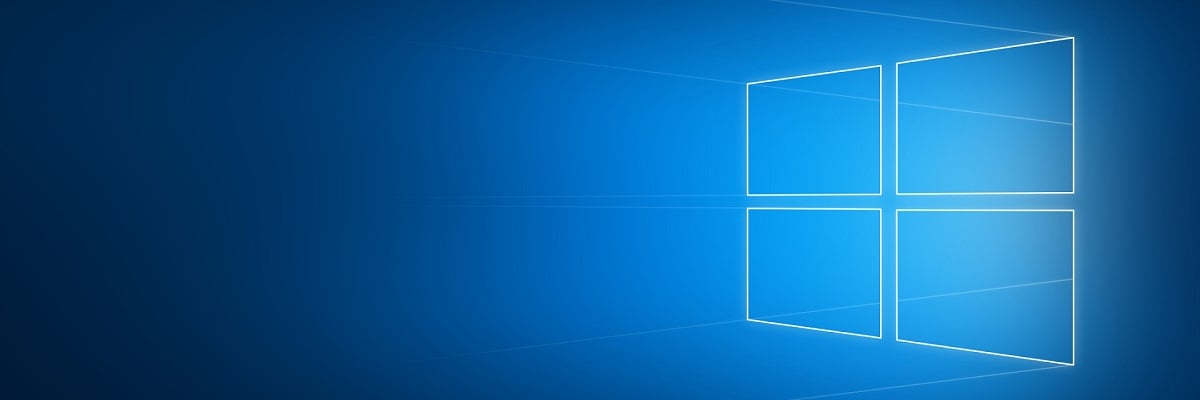Regardless of whether you are running a newer or an older version of the Windows OS, Microsoft has got a little bit of everything for pretty much everyone. The April 2023 Patch Tuesday updates are expected to fix some of the issues that were still pending, and in the article below we will be looking to see exactly what we get. We’ve included detailed changelogs for each cumulative update, and we will also be providing you with direct download links from Microsoft’s Windows Update Catalog, so you know that they are secure. Alternatively, you can always use other methods to get the latest updates, including:
The Windows Update menu on your OS The WSUS (Windows Server Update Service) Group Policies set up by your admins if you’re part of a larger network.
Changes included in the April 2003 Patch Tuesday Updates
Windows 11
As most of you know by now, Microsoft released its latest operating system, Windows 11, on the 5th of October, 2021. Five months after the general rollout, the new OS seems to become increasingly stable and far less buggy than we’ve gotten used to. You might also like to know that the 22H2 version of Windows 11, the operating system’s first major update, is out now and you can already install it. It will, most likely, come in the first half of the year, so we might just get it until the summer. Of course, there is a possibility that the Redmond tech giant could postpone to the third, or fourth quarter.
Cumulative update name
KB5023774
Improvements and fixes
This update resolves an issue affecting the command line. This fails when you set the system setting to Japanese and cmd.exe is configured in legacy mode. The update fixes an issue that affects the remote procedure call service ( rpcss.exe ). The issue could lead to a race condition between the Distributed Component Object Model (DCOM) and the Microsoft Remote Procedure Call (RPC) endpoint mapping. This update affects the ms-appinstaller URI . It now works with the DesktopAppInstaller policy. This update resolves an issue that affects Microsoft PowerPoint. It stops responding to the Azure Virtual Desktop (AVD). This happens when you use Visual Basic for Applications (VBA). This update resolves an issue that affects Windows Search. Windows Search fails in Windows container images. This update resolves an issue that affects the Microsoft HTML Application Host (HTA). This issue blocks the execution of code that uses Microsoft HTA. This occurs when you enable Windows Defender Application Control (WDAC) User Mode Code Integrity (UMCI) enforced mode. This update resolves an issue that affects Desired State Configuration. The previously configured options will be lost. This happens if metaconfig.mof is missing. This update resolves compatibility issues affecting some printers. These printers use windows graphical device interface (GDI) printer drivers. These drivers are not fully compliant with GDI specifications. This update resolves an issue that affects the Simple Certificate Enrollment Protocol (SCEP) certificate. The system reports some SCEP certificate installations as failed. Instead, the system should report them as pending. This update resolves an issue affecting the new Windows Runtime (WinRT) API. This issue prevents an application from querying location data using MBIM2.0+. This update resolves an issue that affects the Fast Identity Online 2.0 (FIDO2) PIN icon. It is not displayed on the reference screen of an external monitor. This happens when that monitor is connected to a closed laptop. This update affects the configuration file for setting default Group Policy Object (GPO) links. You can now use it to create an extension for specific applications. This update resolves an issue affecting the SharedPC account manager. Multiple accounts cannot be deleted during the cleanup. This update resolves an issue that may affect lsass.exe. It may stop responding. This occurs when an LDAP (Lightweight Directory Access Protocol) query is sent to a domain controller that has a very large LDAP filter.
Known issues
After installing updates released on January 10, 2023 and later, kiosk device profiles that have auto-login enabled may not be able to auto-login. After Autopilot completes provisioning, the affected devices remain on the login screen requesting credentials. After installing this or later updates, Windows devices with some third-party ui customization apps may fail to boot. These third party apps can cause explorer.exe errors that may repeat multiple times in a loop. The known affected third party ui customization apps are ExplorerPatcher and StartAllBack. These types of apps often use unsupported methods to accomplish their customization and as a result may produce unintended results on your Windows device. After installing this or later updates, Red Dead Redemption 2 may not open. Attempting to open the game from the Rockstar Games Launcher by selecting the Play button switches to Load, but Red Dead Redemption 2 may not open and the button reverts to Play.
[DIRECT DOWNLOAD LINK]
Windows 10 versions 21H2, 21H1, and 20H2
Windows 10 v21H2 is the latest major version of Windows 10, and as such has the most experimental features on it. Fortunately, most bugs that were first present when it was first made available have been weeded out, and this version of Windows 10 is far more stable.
Cumulative update name
KB5025221 SPONSORED
Improvements and fixes
This update implements the new Windows Local Administrator Password Solution (LAPS) as a Windows inbox feature. For more information, see By popular demand: Windows LAPS available now! This update affects the Arab Republic of Egypt. The update supports the government’s daylight saving time change order for 2023. This update addresses a compatibility issue. The issue occurs because of unsupported use of the registry. This update addresses a known issue that affects kiosk device profiles. If you have enabled automatic logon, it might not work. After Autopilot completes provisioning, these devices stay on the credential screen. This issue occurs after you install updates dated January 10, 2023, and later.
Known issues
Devices with Windows installations created from custom offline media or custom ISO image might have Microsoft Edge Legacy removed by this update, but not automatically replaced by the new Microsoft Edge. This issue is only encountered when custom offline media or ISO images are created by slipstreaming this update into the image without having first installed the standalone servicing stack update (SSU) released March 29, 2021 or later.
Windows 10, version 1809
This version of the OS is outdated and will no longer receive any updates from the tech company. Users that are still running this old version on their devices are strongly advised to choose a more recent one to update to. If you still want to use Windows 10 and are not willing to upgrade to 11, you don’t have to do so right away. After all, Microsoft announced that the support for Windows 10 will go on until 2025.
Cumulative update name
KB5025229
Improvements and fixes:
This update adds many new features and improvements to Microsoft Defender for Endpoint. For more information, see Microsoft Defender for Endpoint. This update implements the new Windows Local Administrator Password Solution (LAPS) as a Windows inbox feature. For more information, see By popular demand: Windows LAPS available now! This update affects the Arab Republic of Egypt. The update supports the government’s daylight saving time change order for 2023. This update enables onunload events to create pop-up windows in IE Mode. This update addresses an issue that affects Microsoft Edge IE mode and pages that use predictive prerendering. Edge IE mode does not support predictive prerendering. Because of this, a page that uses prerendering will load as if it was not in use. This update addresses an issue that affects Desired State Configuration. It loses its previously configured options. This occurs if metaconfig.mof is missing. This update addresses compatibility issues that affect some printers. These printers use Windows Graphical Device Interface (GDI) printer drivers. These drivers do not completely adhere to GDI specifications. This update addresses an issue that affects the Host Networking Service. The service stops working. Because of this, there are traffic interruptions. This update addresses an issue that affects Administrator Account Lockout policies. GPResult and Resultant Set of Policy did not report them. This update addresses an issue that affects MySQL commands. The commands fail on Windows Xenon containers. This update addresses an issue that affects repair storage jobs. The jobs are suspended. This occurs after two physical disks in two different rack-level fault domains (three fault domain in total) lose communication.
Known Issues:
After installing KB5001342 or later, the Cluster Service might fail to start because a Cluster Network Driver is not found. After installing updates released January 10, 2023, and later, kiosk device profiles that have auto log on enabled might not sign in automatically. After Autopilot completes provisioning, affected devices will stay on the sign-in screen prompting for credentials.
Windows 10, version 1607
Windows 10, version 1607 has reached the end of service for all of its available editions. Update to the latest version of Windows 10 in order to keep your system protected.
Cumulative update name
KB5025228
Improvements and fixes
This update affects the Arab Republic of Egypt. The update supports the government’s daylight saving time change order for 2023. This update addresses an issue that affects Microsoft Edge IE mode and pages that use predictive prerendering. Edge IE mode does not support predictive prerendering. Because of this, a page that uses prerendering will load as if it was not in use. This update addresses compatibility issues that affect some printers. These printers use Windows Graphical Device Interface (GDI) printer drivers. These drivers do not completely adhere to GDI specifications.
[DIRECT DOWNLOAD LINK]
This wraps up our brief overview of this month’s Patch Tuesday updates, and we hope that by reading the changelogs above, you will make a more informed decision regarding whether to update or not. However, keep in mind that if you choose not to update for too long, you will risk exposing yourself to subsequent malware attacks that usually follow the Patch Tuesday updates, called Exploit Wednesday. On that note, if you do prefer to wait out until Microsoft fixes the issues detected in this month’s updates, know that you can always choose to delay the Update notification that you get for up to 35 days. All in all, it is important to remember that the Patch Tuesday updates are released for a reason, so installing them, eventually, is something that you should do. Was this article helpful to you? Let us know in the comments section below.
Name *
Email *
Commenting as . Not you?
Save information for future comments
Comment
Δ



![]()